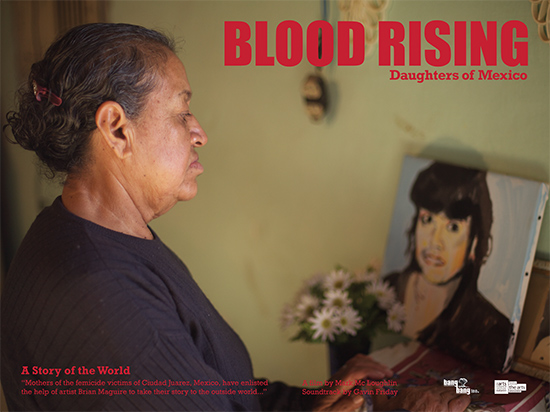Posted on November 24, 2007 by Kathy
If you’d like to be a more socially conscious consumer, here are some organizations, some local, some online, where you can purchase gifts while making a difference in the lives of real people. These suggestions come from two of our UConn professors who teach and embody the ideals of these organizations. They are listed alphabetically! No order intended.
If you have some other suggestions, please add them via a comment to this blog.
And pass these on to your friends and family!
A Greater Gift from SERRV:
A Greater Gift is a program of SERRV International, a nonprofit alternative trade and development organization. Our mission is to promote the social and economic progress of people in developing regions of the world by marketing their products in a just and direct manner.
Our goal is to alleviate poverty and empower low-income people through trade, training and other forms of capacity building as they work to improve their lives. SERRV has worked to assist artisans and farmers for more than 55 years through the following:
- Marketing their handcrafts and food products in a just and direct manner.
- Educating consumers in the United States about economic justice and other cultures.
- Providing development assistance to low-income craftspeople through their community-based organizations.
SERRV International was one of the first alternative trade organizations in the world and was a founding member of the International Fair Trade Association (IFAT).
We offer our artisan and farmer partners up to 50% advance payment on orders. This advance helps them to purchase raw materials and have a more regular income so they can avoid high interest rates from borrowing locally.
CoOp America:
About Co-op America
Co-op America is a not-for-profit membership organization founded in 1982.
Our mission is to harness economic power—the strength of consumers, investors, businesses, and the marketplace—to create a socially just and environmentally sustainable society.
Our Vision
We work for a world where all people have enough, where all communities are healthy and safe, and where the bounty of the Earth is preserved for all the generations to come.
CREA: Center for Reflection, Education and Action (based in Hartford):
“Believing that the earth is home to all, CREA facilitates analysis of human, social and economic policies from the perspective of their effects on human lives, beginning with the lives of people who are poor.”
Dean’s Beans (fair trade coffee):
We only purchase beans from small farmers and cooperatives, largely made up of indigenous peoples working hard to maintain their culture and lifestyles in a hostile world. We do not buy beans from large estates and farms. We’ve been there, and have seen the conditions of chronic poverty and malnutrition within which these farms produce those other coffees. Look in your kitchen – do you know where your beans come from?
Each player in our cycle of production and distribution, from the farmer to the consumer, participates in socially just and environmentally responsible trade. We hope that all other coffee companies will follow our lead.
We are proud to be a founding member of Cooperative Coffees, Inc., the first roaster’s cooperative created to buy direct, Fair Trade coffee from farmer coops, and make it available to any small roaster who wants to participate in the Fair Trade movement. We are also active members of the Fair Trade Federation, an international organization of dedicated Fair Traders (no poseurs allowed).
Global Exchange
Our consumer spending choices affect people’s lives around the world. The products we enjoy are often made in conditions that harm workers, communities and the environment. But increasingly consumers are demanding more humane, more environmentally sensitive products.
In today’s world economy, where profits rule and small-scale producers are left out of the bargaining process, farmers, craft producers, and other workers are often left without resources or hope for their future. Fair Trade helps exploited producers escape from this cycle and gives them a way to maintain their traditional lifestyles with dignity.
Heifer International
Heifer’s Mission to End Hunger
Heifer envisions…
A world of communities living together in peace and equitably sharing the resources of a healthy planet.
Heifer’s mission is…
To work with communities to end hunger and poverty and to care for the earth.
Heifer’s strategy is…
To “pass on the gift.” As people share their animals’ offspring with others – along with their knowledge, resources, and skills – an expanding network of hope, dignity, and self-reliance is created that reaches around the globe.
Heifer’s History
This simple idea of giving families a source of food rather than short-term relief caught on and has continued for over 60 years. Today, millions of families in 128 countries have been given the gifts of self-reliance and hope.
Read more about Heifer’s History.
10,000 Villages
Our Principles of Operation
At Ten Thousand Villages we add our own principles of operation to the IFAT key principles of fair trade:
- We honor the value of seeking to bring justice and hope to the poor.
- We trade with artisan groups who pay fair wages and demonstrate concern for their members’ welfare.
- We provide consistent purchases, advances and prompt final payments to artisans.
- We increase market share in North America for fairly traded handicrafts.
- We market quality products that are crafted by underemployed artisans.
- We build sustainable operations using a variety of sales channels, including a network of stores with a common identity.
- We choose handicrafts that reflect and reinforce rich cultural traditions, that are environmentally sensitive and which appeal to North American consumers.
- We encourage North American customers to learn about fair trade and to appreciate artisans’ cultural heritage and life circumstances with joy and respect.
- We use resources carefully and value volunteers who work in our North American operations.
Filed under: Activism | Tagged: Fair Trade, Holiday Shopping, Socially conscious consumerism | 1 Comment »
For more from Kathy, check out her blog at http://wsliblog.wordpress.com/


